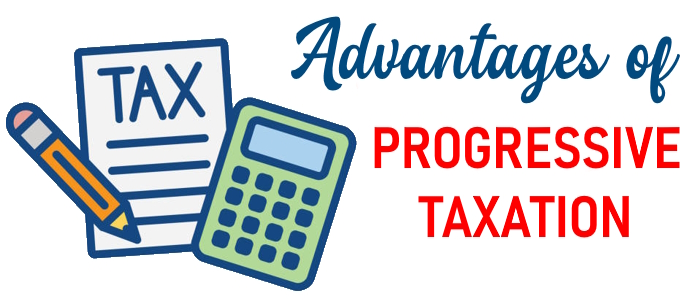Advantages of Progressive Taxation
Progressive taxation is a tax system where individuals or corporations with higher incomes pay a higher percentage of their income in taxes than those with lower incomes. This is in contrast to a regressive tax system where low-income earners pay a higher percentage of their income in taxes than high-income earners. There are several advantages to implementing a progressive tax system, and this article will explore them in detail.
Table of Contents
- 1 Advantages of Progressive Taxation
- 1.1 Greater Equity and Fairness
- 1.2 Reducing Income Inequality
- 1.3 Greater Revenue for Government Programs
- 1.4 Economic Stability
- 1.5 Encouraging Investment in Society
- 1.6 Encouraging Responsibility
- 1.7 Encouraging Innovation and Creativity
- 1.8 Reducing the Fiscal Deficit
- 1.9 Encouraging Consumer Spending
- 1.10 Promoting Social Mobility
- 1.11 Encouraging Entrepreneurship
- 1.12 Promoting Environmental Sustainability
- 1.13 Improving Public Health
- 1.14 Encouraging Social Cohesion
- 1.15 Encouraging Charitable Giving
Advantages of Progressive Taxation

Greater Equity and Fairness
One of the primary advantages of progressive taxation is that it promotes greater equity and fairness in the distribution of tax burdens. Under a progressive tax system, the wealthiest individuals and corporations are required to pay a larger share of their income in taxes than those with lower incomes. This means that the tax burden is spread more evenly across society, with those who can afford to pay more bearing a larger share of the burden.
Reducing Income Inequality
Progressive taxation is also an effective tool for reducing income inequality. When wealth is concentrated in the hands of a few individuals, it can lead to social and economic disparities, with some individuals having access to more opportunities and resources than others. By taxing high earners at a higher rate, progressive taxation can help to redistribute wealth and reduce income inequality, promoting a more equitable society.
Greater Revenue for Government Programs
Another advantage of progressive taxation is that it can generate greater revenue for government programs and services. When the wealthiest individuals and corporations are required to pay a higher percentage of their income in taxes, this can result in a significant increase in government revenue. This revenue can then be used to fund important programs such as healthcare, education, and infrastructure, which benefit all members of society.
Economic Stability
Progressive taxation can also promote greater economic stability by providing a stable source of government revenue. During times of economic downturn, when tax revenues are likely to decrease, progressive taxation can help to maintain a steady flow of revenue to the government, ensuring that important programs and services continue to be funded.
Encouraging Investment in Society
Progressive taxation can also encourage investment in society by requiring high earners to contribute more to the public good. This can incentivize individuals and corporations to invest in programs and services that benefit society as a whole, such as education and infrastructure. By investing in these areas, high earners can help to create a more prosperous and equitable society.
Encouraging Responsibility
Progressive taxation can also encourage responsibility among high earners by requiring them to contribute a larger share of their income to the common good. This can promote a sense of responsibility and citizenship, encouraging high earners to act in ways that benefit society as a whole.
Encouraging Innovation and Creativity
Progressive taxation can also encourage innovation and creativity by freeing up resources for investment in new ideas and technologies. By taxing high earners at a higher rate, the government can generate more revenue to fund research and development, which can lead to new breakthroughs in science, technology, and other fields.
Reducing the Fiscal Deficit
Another advantage of progressive taxation is that it can help to reduce the fiscal deficit. When the government generates more revenue from high earners, it can use this revenue to reduce the deficit, which can help to stabilize the economy and promote long-term economic growth.
Encouraging Consumer Spending
Progressive taxation can also encourage consumer spending by promoting greater income equality. When low and middle-income earners have more disposable income, they are more likely to spend money on goods and services, which can help to stimulate the economy and create jobs.
Promoting Social Mobility
Progressive taxation can also promote social mobility by providing resources for education and training programs that can help individuals move up the economic ladder. By investing in education and job training programs, the government can help to provide individuals with the skills and knowledge they need to succeed in the workforce, promoting greater upward mobility.
Encouraging Entrepreneurship
Progressive taxation can also encourage entrepreneurship by providing resources for small businesses and startups. By taxing high earners at a higher rate, the government can generate more revenue to invest in programs that support entrepreneurship, such as business incubators and loan programs.
Promoting Environmental Sustainability
Progressive taxation can also promote environmental sustainability by providing resources for environmental protection programs. By generating more revenue, the government can invest in programs that promote renewable energy, reduce carbon emissions, and protect natural resources.
Improving Public Health
Progressive taxation can also improve public health by providing resources for healthcare programs. By generating more revenue, the government can invest in programs that provide access to healthcare services for all members of society, promoting better health outcomes and reducing healthcare disparities.
Encouraging Social Cohesion
Finally, progressive taxation can encourage social cohesion by promoting a sense of shared responsibility and solidarity. When high earners are required to pay a higher percentage of their income in taxes, it can help to create a sense of shared sacrifice and social responsibility, promoting greater social cohesion and solidarity.
Encouraging Charitable Giving
Finally, progressive taxation can encourage charitable giving by allowing high earners to deduct a portion of their charitable donations from their taxable income. This can incentivize high earners to donate more to charitable causes, promoting greater social responsibility and philanthropy.


